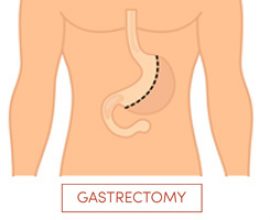5 Risks of Obesity

If you are overweight, then it is important to understand five common risks of obesity. A physician can help with creating nutritious meal plans or fun exercise programs that are designed to help you lose weight safely. In addition, a surgeon can perform a surgical procedure to help with your weight loss.
One: Hypertension
Obesity causes high blood pressure, and unfortunately, hypertension typically has no symptoms. However, hypertension is responsible for other health problems such as chronic kidney disease, vision loss or heart failure that do have unpleasant symptoms. A physician may notice that you have hypertension during an examination. While there are medications to help reduce hypertension, it is better to lose weight by reducing your caloric intake and exercising more often.
Two: Diabetes Mellitus
Today, more individuals are developing diabetes mellitus type 2 due to their excess weight. Obesity changes the body’s metabolism leading to insulin resistance along with increased blood sugar in the bloodstream. Most individuals with diabetes have type 2, and it leads to complications that include poor blood circulation, kidney failure or blindness. A physician can prescribe medication such as tablets or injections to improve insulin resistance, but losing weight is also necessary.
Three: Cardiovascular Disease
Cardiovascular disease affects your blood vessels, arteries or heart, leading to a variety of serious medical conditions. One of the main causes of cardiovascular disease is obesity from consuming foods that contain a lot of saturated fat, sugar and salt rather than eating nutritious vegetables and fruit. In addition, when you are overweight, your blood vessels are often clogged with layers of cholesterol that also contribute to cardiovascular disease.
Four: Strokes
A stroke is caused by a lack of blood flow to the brain, and it leads to symptoms such as muscular weakness and damage to the brain. Unless an individual having a stroke receives prompt medical care, they will likely die. Physicians know that obesity is a major risk factor for having strokes, but with a new diet and exercise plan, it is possible to lose weight in order to help prevent a stroke.
Five: Joint Problems
Excess weight can lead to joint problems caused by the additional pressure on your delicate cartilage while walking, standing or running. The weight-bearing joints of the knees and hips are especially affected by obesity. You might develop osteoarthritis at an early age, leading to damage to your spinal column that is located from the base of the neck to the lower back. If you do not reduce your body weight, then the damage to your joints can lead to immobility, and you may require a surgical procedure to replace one or more joints.
Related Posts
5 Risks of Obesity
How Sleeve Gastrectomy Works
The Advantages of Orbera
Are You a Candidate for Sleeve Surgery?
Contact Info
3420 Bristol St #700, Costa Mesa, CA 92626, USA
Orange Location
1310 W Stewart Dr. Suite 310, Orange, CA 92868, USA





*DISCLAIMER
In compliance with 16 CFR 255 and Federal Trade Commission Guidelines on the use of endorsements and testimonials in the marketing and advertising of websites:
The testimonials, statements, and opinions presented on our website are only applicable to the individuals depicted, and may not be representative of the experience of others. The testimonials are voluntary provided and are not paid, nor were they provided with free products, services, or any benefits in exchange for said statements. The testimonials are not indicative of future results or success of any other individuals. South Coast Specialty Surgery Center cannot and does not guarantee the medical outcome or the results of individuals utilizing the services provided by us or the providers in our network, or from any of the websites we link, or refer to. The testimonials and endorsements found on the site for the benefit of the site or individual services or procedures are, to the best of our knowledge, the true statements and beliefs of the individuals providing them. In short, surgery involves risk, results may vary, and outcomes are not guaranteed.
Some pages of this website may feature a depiction of a model showing emphasis of the torso.
Product names may be mentioned in testimonials or elsewhere, and are trademarks or registered trademarks of their respective holders. Please refer to our Terms and Risks of Surgery pages for more information. Gastric Sleeve Surgery Centers performs Gastric Sleeve Surgery in Orange County, San Diego, Los Angeles, Riverside County and other location in Southern
California.











